As musicians and composers, I think we eventually arrive at a crossroads in our journey where we realize that our music making goes way beyond ourselves. As we aspire for success in the music business, it is often challenging to stay connected to the creative source while we manage the business side. Not that aspiring for financial gain is wrong, I've just seen many musicians burn out along the way chasing that and loose sight of why they are making music in the first place.
So, what are healthier ways to approach music making that will keep us creating, performing, sharing and reaching deeper? One way to look at this is from the standpoint of being musician that heals, not only yourself but also people around you to achieve a state of well-being. When musicians connect to others through sound, without the need for anything in return, creativity is cultivated. I recently found a quote floating around on the web from medical educator and integrative medicine specialist Dr. Rachel Naomi Remen. Her words encapsulate the spirit of this article's message:
“At the deepest level, the creative process & the healing process arise from a single source. When you are an artist, you are a healer; A wordless trust of the same mystery is the foundation of your work and its integrity.”
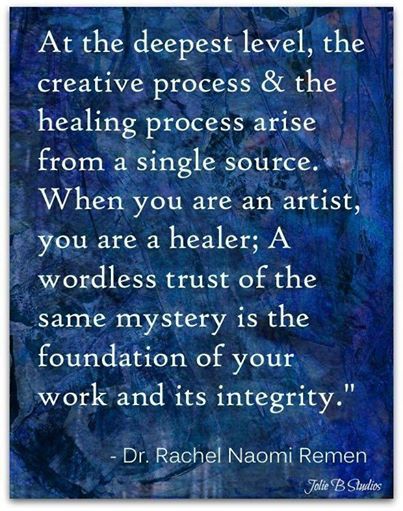
Dr Rachel Naomi Remen Quote.
Musician, heal thyself
The more I examine my musical life and especially my songwriting and recording experience over the past decade, I can see the creative and the healing process in concurrent motion. It's common to hear statements from young songwriters about how their songs are all in minor keys as their work out their various frustrations and fears. Artists who write about overcoming obstacles or finding love often express this musically in a major key. We use our musical tools to express emotions or work them up and out if you will. Our friends and fans respond by acknowledging these messages because the music language is universal. Wherever musical inspiration comes from, one could say we attract the sounds we need for ourselves, whether they are from a favorite artist or the sounds we choose to make our compositions. The question you might ask yourself is, 'How do I heal myself and others through music?' The relationship between music and healing crosses all genres and cultures. What's complete noise to some is a breakthrough for others.
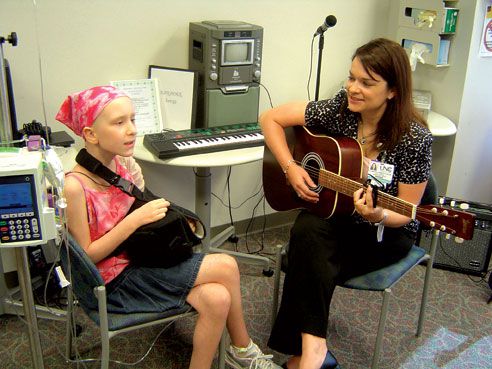
Connecting Through Music.
Healing Others through Music – Traditional Contexts
I think it's important to mention some of the tested methods of music therapy before going too far on the philosophical nature of music and healing. Certainly, many of the sound healing techniques I've mentioned in previous articles are valid in establishing well-being but there are also traditional music therapy career paths. Music therapists are trained in either piano or guitar for most part and learn a variety of songs and techniques to use with their patients. Music therapy patients range from the elderly in hospice care, to trauma victims, children with autism or other development challenges and even the incarcerated. Music therapists work in children's hospitals and mental institutions to help promote the healing and communication process. This is not easy work to do in situations where people are experiencing real lows in their lives. Music therapy is a board certified career path requiring knowledge of music and therapy as well as deep sensitivity to the segments of the population with special healing needs. There is emphasis on scientific research and development through tested methodology. This gives music therapy a foundation from which to grow from. It's an important, but often overlooked career path for musicians.
Music Therapy in Hospitals.
One of the most poignant videos showing the power of music therapy was Senator Gabrielle Giffords learning to speak again after her brain injury from a gunshot wound. Nightline did a 3-part news story about her journey that's available on YouTube and part 2 is below. You will see the music therapists working with her on simple songs in order to build new pathways for language. Research shows that incorporating music and singing into language development uses a different part of the brain than the usual spoken language area. When the words are sung instead of spoken, a rewiring is taking place that allows the brain to resynthesize language again, like going through a back door. In fact, as you'll see from the video clip below, it is now known that music activates the entire brain. Oliver Saks, a well-known authority on music and the brain is interviewed as well.
Shifting Perspective
Not every musician is meant for the rigors of the music therapy field. With that said, there are so many ways to shift our perspective on what it means to be a musician or composer with healing intention in today's modern world. How do we fit this new perspective into our daily music making? Here are some suggestions:
- Teaching Others – Whether in a professional or social context, try handing down knowledge to those who are just getting started and gain a fan for life.
- Volunteer at Hospital or Hospice Center – More hospitals are adapting a volunteer program for musicians to play for patients who wind up healing much faster than without music
- Collaborate and Play – Jam and collaborate with other musicians and composers as much as you can. Be a part of someone else's musical healing journey. Set aside time for music making with the intention of free play with no obligation or outcome attached to it.
- Plan a Music Event – Put together a live jam or full night of music with bands you love at a café or club. Or, take over the music responsibilities at a friend or family birthday or wedding. When you plan music for a special event, you are the glue that ties that community of folks together, helping to create lasting memories.
Music and healing come from the same source. There is a richness waiting there at whatever level one might be musically. Pay close attention to the music that attracts you. What is it about the tone, timbre, instruments and the feeling you get from the music that affects you? This article is meant for you to make a creative inquiry into your process as a musician and composer in the hopes you may find connections to your own healing and begin to share that with the world through your own musical expression.
Music Healing Tools (soundenergywellness.com)


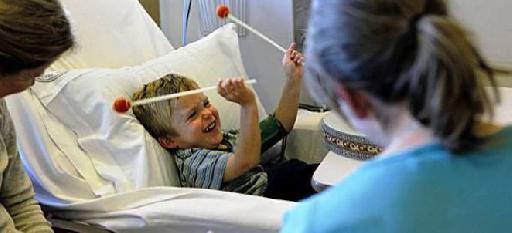
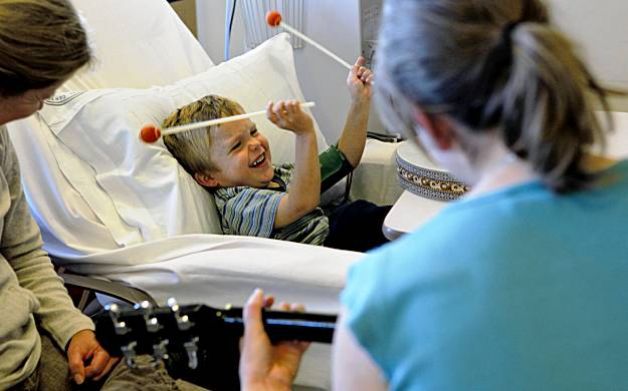
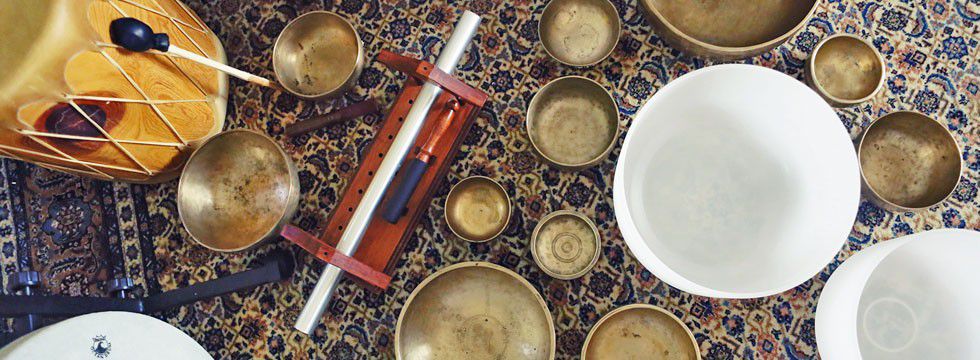
 © 2024 Ask.Audio
A NonLinear Educating Company
© 2024 Ask.Audio
A NonLinear Educating Company
Discussion
Want to join the discussion?
Create an account or login to get started!